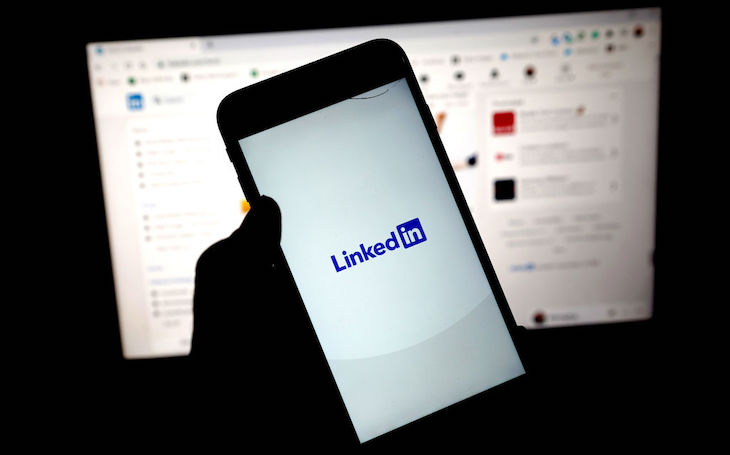I’d always assumed that LinkedIn is Instagram for people with lanyards. A place for earnest self-congratulation, polite emoji applause, and lightly airbrushed career updates: ‘Humbled to be speaking at Davos’; ‘Thrilled to have joined Deloitte’; ‘Grateful to my incredible team for smashing Q4 targets.’ That sort of thing. Sanitised, self-serving and safely anodyne with an easy trade: a like for a like, a ‘repost’ for a ‘funny’.
Instead of an apology, I received a torrent of replies ranging from ‘you had it coming’ to ‘stop making a fuss’
So when I posted something mildly provocative, I expected at worst a few furrowed brows and an awkward silence in the comments. I did not expect a social media thunderstorm. The provocation? A practical, depoliticised Diversity, Equity and Inclusion (DEI) plan.
In light of US president Donald Trump’s executive orders and the ensuing legal backlash, DEI has become the HR profession’s third rail. Everyone has an opinion; no one wants to get electrocuted. So I thought I’d share a seven-point plan my company had helped a FTSE 30 board adopt: it’s a model that replaces ideology with evidence and helps everyone, not just identity groups, to thrive.
The plan advised against the lexicon of victimhood: no mention of ‘oppressed vs oppressors’, ‘white privilege’, or ‘institutional phobias.’ Instead, it proposed focusing on universal human truths: that everyone faces different headwinds and tailwinds, many of them invisible, and not all equal; that rather than victims and perpetrators we all have a role in creating a work environment where people succeed based on their talents, rather than their background.
We advocated everyday language. ‘Bias’ was out. ‘Good judgment’ was in. We called for a duty of care to all, rather than declarations on global political events. It was not radical. In fact, it was built on rigorous behavioural science and tested in various large companies. I thought it might even be useful.
But then I had forgotten where I was. This was LinkedIn, supposedly the realm of calm, considerate professionalism. In reality, it is anything but. The backlash came fast. First, a client rang up one of my colleagues to say that unless I publicly retracted my comments, he’d cease working with us. This proved to be prophetic but not, I suspect, for the reasons he’d imagined. Two weeks later, the client was ‘let go’. It appears that his world of work had had enough of his woke.
A DEI influencer – high on followers, low on nuance – quoted my line about ‘headwinds’ and added, ‘Amazing mental gymnastics for someone who, according to multiple online biographers, is the ‘son of socialite Brinsley Black.’ I can’t even…”
Here was a man who claims to champion fairness and inclusion attacking me for something my father may or may not have done fifty years ago.
Expecting a few voices from HR’s vast choir of speak-up culture to chime in, I posted a polite but firm response:
‘You have picked up on something from the web (not well known for its accuracy) and decided to play the person rather than the ball. If I had plucked some slight about your parents from the internet and used it to dismiss your arguments, I suspect you’d be outraged and rightly so. I think you – and the 39 people who liked your comment – owe me an apology.’
Instead of an apology, I received a torrent of replies ranging from ‘you had it coming’ to ‘stop making a fuss’. A few kind souls sent DMs in solidarity (thank you), but the public square remained conspicuously quiet. It was as if everyone had decided that speaking out was something they were keen to encourage other people to do, but, when it came to taking on a DEI aficionado, it wasn’t worth the risk.
Then came my next misstep. I congratulated Barclays for ensuring there were women-only as well as mixed-gender loos after the Supreme Court clarified the legal definition of sex. Cue the mob. The pile-on made the previous furore feel like a warm-up act. This time, I panicked and did something I regret to this day: I deleted the post.
But the strangest thing wasn’t the rage. It was what happened next.
My posts – which previously tended to reach a respectable 10,000 impressions – now struggled to break 500. Posts containing valuable new evidence on productivity, absenteeism and the psychology of high performance languished in obscurity. I had, it seemed, been ghosted by the machine.
LinkedIn, for all its talk of inclusion, appears to have the subtle hand of censorship down to an algorithmic art. You’re not suspended; just muffled. Not punished; just buried. There’s no trial. No court of appeal. No feedback. Just the quiet hum of the system deciding you’re no longer quite right for the party.
This is a platform that claims: ‘We are open, honest and constructive. By seeking the truth and keeping it real, we are more likely to generate solutions to difficult problems.’ It’s a lovely sentiment. Someone should tell their bots.






Comments